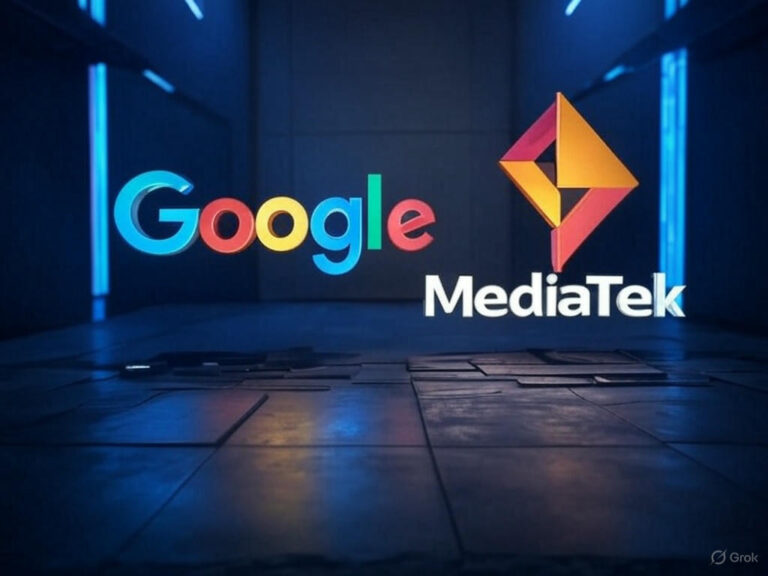Google announced a strategic partnership with Taiwanese semiconductor giant MediaTek to develop its next-generation custom AI chips, Tensor Processing Units (TPU). On March 17, the announcement of this partnership sparked speculation about its potential to transform the semiconductor landscape.
This partnership, however, does not imply that Google will be severing ties with Broadcom, its longtime partner in manufacturing TPUs, but instead it is a step to mitigate supply risks by having multiple suppliers and enhance the supply chain resilience.
For the past decade, Google has been developing custom AI accelerators, the TPU, to address the growing demands of AI workloads and pave the way for multimodal AI. Unlike general-purpose chips like the CPU, TPUs are application-specific integrated circuits (ASICs).
The TPU’s specific design accelerates a high volume of mathematical and logical operations, thereby speeding up and improving the efficiency of machine learning. In early 2024, Google announced ‘Trillium,’ a sixth-generation TPU, a high-performance chip specifically made for generative AI in mind.
There is a significant distinction between Trillium and the previous generations of TPUs. Trillium boasts a 4x increased training speed, a 3x increase in inference throughput, a 67% energy efficiency boost, a 4.7x increase in peak compute per chip, double HBM (High Bandwidth Memory) capacity and ICI (Interchip Interconnect) bandwidth, a 100k-chip network, and improved price-performance.
These features facilitate enhanced performance across diverse AI workloads, including scaled training, LLM training (dense and Mixture of Experts (MoE)), enhancing inference and scheduling, handling embedding-intensive models, and delivering price-performance for both training and inference.
Trillium was used to train Google’s Gemini model 2.0 and serves as a key component of Google’s AI Hypercomputer, a system that features over 100,000 Trillium chips via a Jupiter network fabric delivering 13 petabits/sec of bandwidth capable of scaling a single distributed training job to hundreds of thousands of accelerators.
Although Google does not sell the Trillium chips directly, they make it available via Google Cloud, making the infrastructure more accessible for a wide range of applications. Trillium TPU was made generally available to the public in December 2024.
The TPU, Trillium, provides an alternative to Nvidia chips for Google and its Cloud customers. According to Economic Times, it is speculated that the decision of Google to partner with MediaTek is driven by its strong collaboration with TSMC (Taiwan Semiconductor Manufacturing Company) and MediaTek’s ability to offer more cost-effective chips compared to Broadcom.
This partnership also has the potential to affect the current landscape of semiconductor market competition. Nvidia chips currently hold between 70% and 95% of market shares for artificial intelligence chips. Google’s partnership with MediaTek for its next generation of TPU chips would earn it a significant percentage of market shares, as not only will it be cost efficient, but it will also have the scaling power and efficiency to be a suitable alternative to Nvidia chips.
The partnership will also help Google enhance AI capabilities, reduce costs, reduce reliance on a single supplier, gain greater control over its chip supply, and result in Google strengthening its position in the competitive AI industry.


